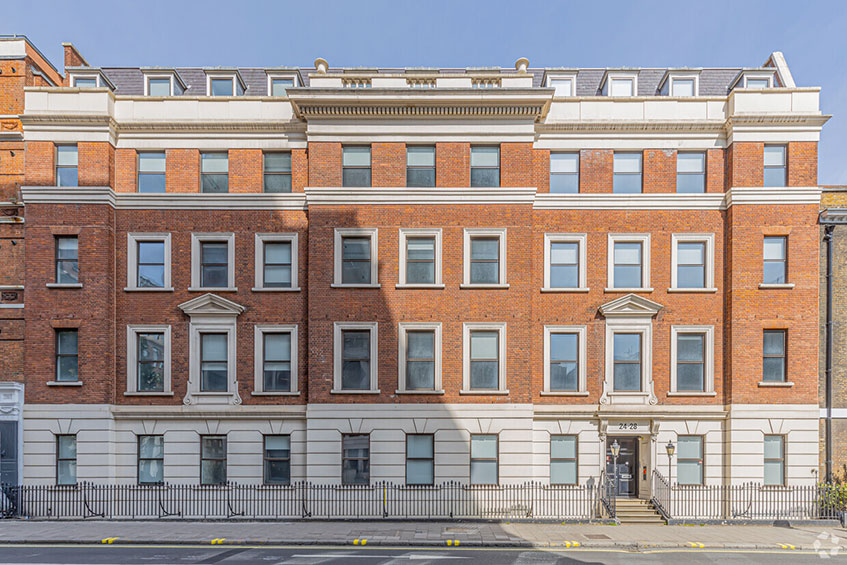 Desperate times call for desperate measures, they say. Personally, I have always thought that notion was not terribly good advice. My suspicion is Theresa May might agree with me.
Desperate times call for desperate measures, they say. Personally, I have always thought that notion was not terribly good advice. My suspicion is Theresa May might agree with me.
The prime minister has stayed firm by not allowing herself to be pushed or pulled by the howls to make Brexit mean something. “When I’m good and ready,” you could imagine has rattled around her head quite a lot in recent months. Last week we learnt more about plans for Brexit, allowing a good six weeks for the details to be debated before the official firing of the Article 50 starter’s pistol.
The same patient approach could be said for the newest tome planned from government to save us from the desperate straits of new-build paralysis. The long-awaited housing white paper has been variously trailed to be delivered prior to the Autumn Statement, as part of the Autumn Statement, just before Christmas and again last week. Now the betting money is not until the end of January.
Admittedly, these are just rumours and this is not a time to spread more false news. However, it would seem that there is just enough credence to the idea that early drafts simply have not had enough substance to meet the challenge. When I’m good and ready, indeed.
LSE professor Christine Whitehead recently totted up the number of new housing policy initiatives since 2010. The number she arrived at is 180. That number is worth repeating: 180. Wow.
It seems there is no shortage of energy being poured into housing initiatives. Don’t get me wrong, I get paid to unpack changing markets and the things that influence them, so you might expect me to be cheering a white paper that seems increasingly likely to offer a raft of new ideas to work through. But based on what we know so far, I have mixed views.
On one hand, despite all that effort, the market clearly still isn’t working to deliver the homes this country needs. Something needs doing differently. There was actually a lot of really good stuff in the Autumn Statement and some bold strokes in removing the less-credible ideas from the Housing and Planning Act, or so I thought, until starter homes were re-announced in the new year. And even deeper from the recesses, we had “garden towns and villages”, with the quaint notion that the thinking which inspired low-density, car-dependent delivery from the 1920s had even the vaguest relevance to today’s housing need. My stomach hadn’t felt so empty since Christmas Eve.
Maybe the bold idea here is not to pile yet more new layers of thinking onto the old ones – maybe what is needed is less. If I was struggling to find faith in May’s government or her new housing champion, then this idea would feel like the least-worst option. However, Gavin Barwell has done a remarkable job of getting across his brief in his first six months in the job and as a result the regurgitation of old, widely panned ideas is a disappointment. Let’s not forget that, as eco-towns, this iteration goes back to 2007 and Gordon Brown, when he was chancellor. I believe Barwell and communities secretary Sajid Javid can and will do better in time.
The number 180 is feared in political circles and it may be that this throat-clearing exercise before the main event has been to – technically – avoid a U-turn. Let’s hope so. Accelerated Construction, the Housing Infrastructure Fund, modular/off-site and BIM support all feel like good, solid programmes to expand delivery by addressing supply bandwidth and the resilience of the supply chain. It is a focus on the right side of the equation and long-term restructuring of an industry approach to delivery that has struggled to modernise at the pace of other manufacturing industries. A shake-up would do it some good and, importantly, this new direction appears to have the financial backing of the chancellor.
One of the political challenges of trying to boost housing supply is that the fruits of any labour tend to take years to bed in. Five-year political cycles come around just a bit too quickly for supporters to claim the credit for successes and often new governments can get rid of “failing” schemes just as they are bedding in. Long-term policies and short-term politics are poor bedfellows.
The current woeful state of the official opposition suggests that government can perhaps look to 2025 and beyond. So, with a cool head and steady hand, May realises that extra months getting it right are worth years of righting the wrongs of bad policy.
Keep calm and issue the white paper. Now that’s fighting talk.
Adam Challis is head of residential research at JLL











